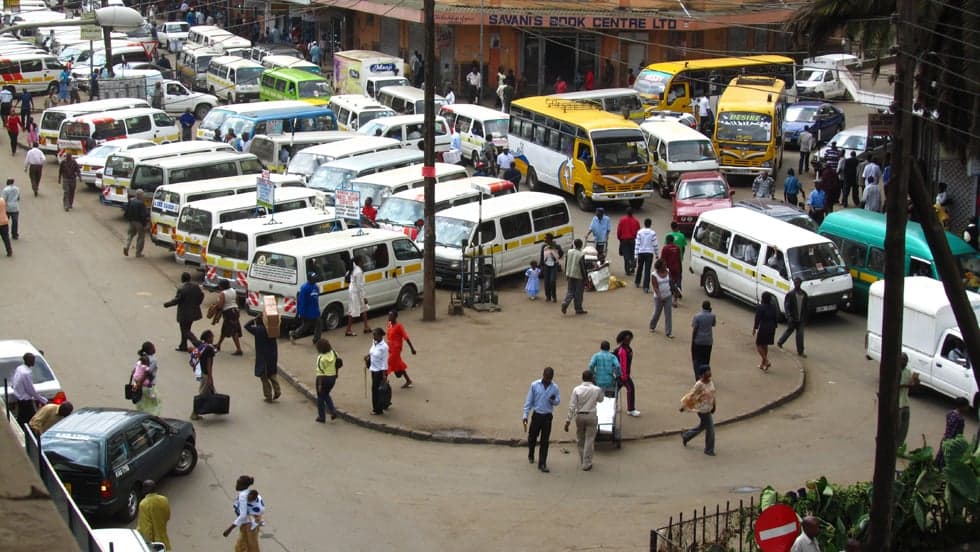We're loading the full news article for you. This includes the article content, images, author information, and related articles.
A high-stakes legal battle is underway at the High Court, where twelve transport Saccos are fighting a petition to ban them from using petrol stations as termini, a move they claim would erase thousands of jobs and cost the Kenyan economy over KES 14 billion.

NAIROBI, KENYA – Twelve matatu Saccos have launched a legal counter-offensive against a petition seeking to prohibit Public Service Vehicles (PSVs) from using petrol stations in Nairobi’s Central Business District as pick-up and drop-off points. In documents filed at the High Court’s Constitutional and Human Rights Division on Tuesday, October 28, 2025, the transport operators described the petition as a politically motivated attack that would trigger catastrophic economic consequences for the city.
The petition, lodged by individuals identified as Ezekiel Oyugi and John Karuru, aims to halt the long-standing practice, presumably on public safety grounds. However, the Saccos, represented by prominent lawyer Danstan Omari, argue the move is not a matter of public interest but a deliberate attempt to “embarrass the Nairobi City County Government and the national government.”
In a detailed replying affidavit sworn by Clinton Wambua, a chairperson representing the twelve respondent Saccos, the operators quantified the potential economic fallout. The Saccos collectively operate over 1,200 vehicles and employ 3,485 staff, supporting thousands of families. A ban, they contend, would lead to staggering financial losses, including:
The total economic disruption, according to their court filings, would exceed KES 14 billion annually, crippling a significant segment of Nairobi's informal economy which provides livelihoods for a vast number of citizens.
The Saccos maintain they have used designated petrol stations—specifically naming Total Energies (Rhino) and Ola Energy (Afya Centre and OTC)—as termini for decades without a single fuel or LPG-related safety incident. Their legal team accuses the petitioners of misleading the court by ignoring crucial safety protocols already in place. “They accuse the petitioners of misleading the court and disregarding safety data showing that fuel tanks are installed underground and located far from active pick-up zones,” the affidavit states.
While the petitioners' core argument revolves around the inherent danger of congregating passengers and vehicles in close proximity to flammable materials, the Saccos dismiss this as speculative. The Energy and Petroleum Regulatory Authority (EPRA) has regulations that forbid setting up petroleum pumps in crowded areas like public transport terminals. However, the Saccos' argument rests on their historical safety record and the engineering controls at the stations. In June 2024, EPRA partnered with county governments to enhance safety surveillance, including guidelines on zoning for petroleum facilities, but the direct application to existing PSV termini is the central question in this case.
The transport operators are adamant that the petition is a “political witch-hunt” disguised as a public interest lawsuit. They argue that previous attempts to reorganize city transport, such as the 2021 relocation of matatus to the Green Park Terminus, resulted in widespread chaos, congestion, and public frustration, demonstrating the impracticality of abruptly dismantling established transport nodes. The Saccos have urged the court to dismiss what they term an “underwhelming, flimsy, and politically driven” petition with costs.
The case, filed as Petition No. E652 of 2025, is now pending before the High Court. Its outcome will have profound implications not only for the 3,485 employees and their families but also for the thousands of Nairobi commuters who rely on these central, accessible transport hubs daily. The court's decision will weigh the petitioners' safety concerns against the Saccos' arguments of economic necessity, political motivation, and a long history of safe operation.
Keep the conversation in one place—threads here stay linked to the story and in the forums.
Sign in to start a discussion
Start a conversation about this story and keep it linked here.
Other hot threads
E-sports and Gaming Community in Kenya
Active 9 months ago
The Role of Technology in Modern Agriculture (AgriTech)
Active 9 months ago
Popular Recreational Activities Across Counties
Active 9 months ago
Investing in Youth Sports Development Programs
Active 9 months ago